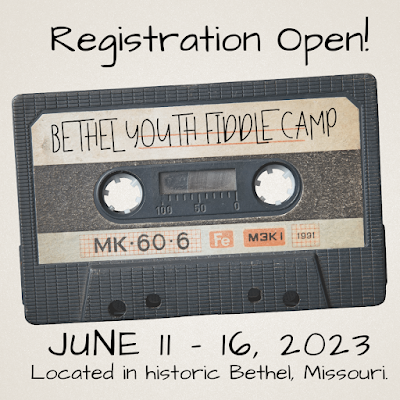Ace Sewell - Southwest Fiddlin'
Hey there, I'm back! Life has been a whirlwind, and I want to say sorry for the radio silence in the past year. Sometimes, life just has a way of keeping us on our toes.
But guess what? I haven't let it slow down my obsessive quest for those elusive, rare music recordings. Our mailman's probably wondering why I order so many flat 12" packages. He probably thinks I collect frisbees...
I'm excited to share an LP with y'all I've been chasing for several years: Ace Sewell's one and only studio recording. It's understandably well played but I've given it some TLC, a good scrub and it's sounds pretty clean!
"Ace Sewell is a farmer-rancher and sometimes grader operator. He is also one of Oklahoma's finest fiddlers.
Born in 1928, Ace grew up in the sand hills of Greer County in Southwestern Oklahoma and it was as a boy that fiddling became a natural part of Ace's life. His father and grandfather were highly respected fiddlers and it came natural for Ace to play and enjoy the only entertainment that was available at the time.
Ace can't recall exactly at what age he began fiddling, but it must have been pretty early because he remembers playing an Elk City radio station at age 6! By 12, Ace was playing for country dances and at age 19, he played professionally as a Western Swing dance band fiddler around western Oklahoma.
Ace's development as a fiddler reflects the main traditions and trends of fiddling in the Southwest. By first cutting his teeth on the traditional hoedowns, hornpipes, and reels, and then mastering the popular dance music of the day, Ace progressed through the well known Old-time and Western Swing styles of playing. But Ace's music continued to grow.
In 1956, at a contest held in Tatum, New Mexico, Ace was exposed to the masterful playing of Texas Norman Solomon who was using a new approach in contest fiddling and playing the fire out of his fiddle. The new style set Ace afire and he immediately went to work on it, studying in particular a friend's tape of Benny Thomasson, one of the men most responsible for the development of the "Texas" style as it now popularly known.
Ace's insights on the playing style are articulate and worth sharing here. It is a kind of "progressive" style of playing where one part of the tune progresses and ties in to the next part. Tying the tune together with new phrases and moving smoothly and relaxed from one part to the next part. Tying the tune together with new phrases and moving smoothly and relaxed from one part to the next gives the tune a rolling quality. It is basically the same tune as played years ago, but has more added to it and is blended better.
The self satisfaction of playing this complex style and the mutual appreciate of the people involved with this music, are everything to Ace. It is plying for sheer enjoyment with a family of friends. In Texas, parties and jam sessions are a natural part of the contest weekend and the music brings together and unites people from all walks of life. It is within this environment that the musicians learn from each other, share new ideas, ad help each other out. Fiddlers will stop one another to learn a new part of a different phrase of notes and then try them against each other in the next contest! And yet, hard feelings are rare. Most play just for fun and the musicians are eager to see each other improve.
The tunes on this album reflect this kind of playing environment. Most of the tunes have no single source, but are dynamic composites of different times, places, and ideas, each finally bearing Ace's stamp.
Several of the tunes first came to Ace from his Dad. These include Sally Johnson, Sally Goodin, Georgie Booker, and Apple Blossom. Sweetest Flower Waltz was his mother's favorite and she always had him play it for her.
The influence of Ace's friend Benny Thomasson is apparent on his selections of Sally Goodin, Tugboat and Jack of Diamonds. Anniversary Song came out of one all-night session at Ace's where the two sat up until dawn getting the tune worked out.
Shortnin' Bread, Martha Campbell, Snowshoes, and this version of Georgie Booker came from Orville Burns, a talented old Indian fiddler in Oklahoma City.
Ace learned Tom and Jerry from his cousin in West Texas, Delmar Shirley. Ookpik Waltz came from Bill Gilbert. Apparently this waltz was brought back by Texas fiddlers visiting Canada and the Pacific Northwest about four years ago.
The fine rhythm guitar playing on this album is provided by two old friends of Ace's, Jay Horton of Chickasha, Oklahoma and Ollie Miller of Jayton, Texas. Bass is played by a new friend, Jim Renner of Portland, Oregon.
Ace and his lovely wife Bert live out in the country east of Chickasha near the community of Alex."
Jim Renner
Project Director, Archive of Oklahoma Fiddlers
Produced by Jim Renner
Cover Design by Vivian T. Williams
Voyager Recordings VRLP-319-S

.jpg)



Comments
Post a Comment